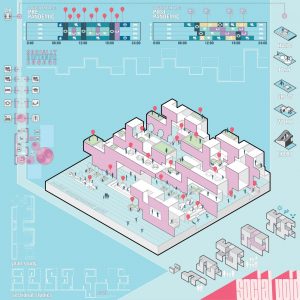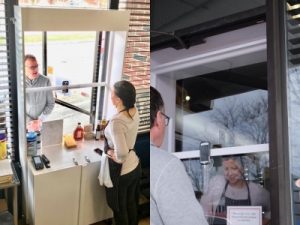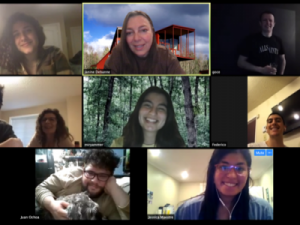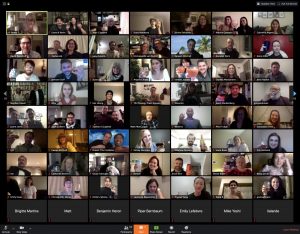Prof. Jerry Hacker wins international competition for home office design
zrieli School Professor Jerry Hacker is one of three winners ((unranked) in an international design competition for a home office. His project is called Social Void. The mOOO platform launched the competition to raise funds for the World Health Organization COVID-19 Solidarity Response Fund. See the brief and winning entries here.

Prof. Hacker’s project statement:
Social Void
If nothing else, the pandemic places at the forefront of our everyday experience an incredibly important reminder for architects: The public realm truly is the soul of architecture and the city, and perhaps the soul of our lives. Devoid of meaningful shared relationships born in the collective domain, the impacts of social isolation and self-quarantine can inflict a unique hardship on people of all generations. Surveying a day in pre-pandemic life reveals a series of critical shared social interactions, the ease, and frequency of which are taken for granted. In post-pandemic life, a strong social media and technological link strive to create meaningful connection at a distance but somehow lack the depth, intimacy, and natural bond that occurs effortlessly in physical space.
As a conceptual departure, Social Void attempts to re-conceptualize the metaphorical and literal divide arising from social distancing by using this emergent phenomenon as the basis to structure and foster respectful yet robust public engagement. Under this lens the 2m grid becomes the starting point in developing an urban plan, a series of urban armatures, and an architecture in plan and section that all operate as infrastructure capable of creating a new type of void in the public realm: a spatial void primed for social occupation and connection at a distance.
This social engagement tool works at the scale of the residence, the neighbourhood, and the community creating an interwoven tapestry of public and private spaces curated to allow people to remain in strong dialogue with one another while respecting the personal space and health rights of others. By virtue of the social void becoming the ‘figure’ of the traditional figure-ground relationship, the urban fabric is highly porous admitting an abundance of fresh air and daylight, all the while creating a gradation of public-private experiences where people can holistically live, work, care for, plant, grow, play, and recreate in place because of a new type of social void in their lives.


